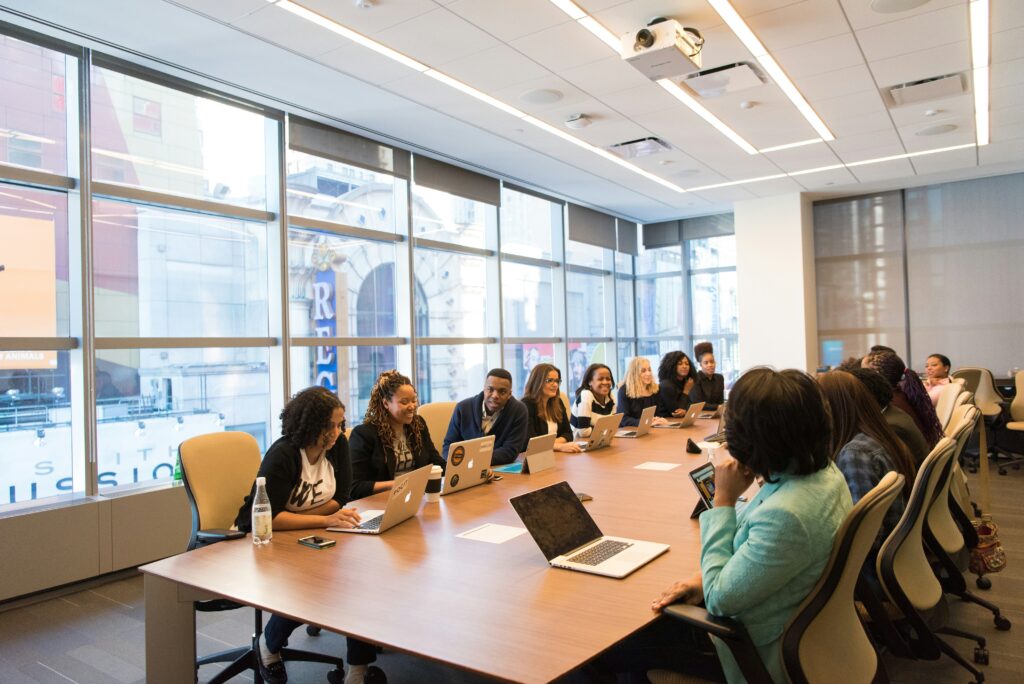In this article, you’ll learn:
- How Diversity, Inclusion, Equality, and Purpose (DIEP) have evolved into essential business drivers
- The measurable impact of DIEP on company success and employee well-being
- How companies can future-proof their workplace cultures through DIEP
- What DIEP means for employees’ career growth and satisfaction
- The seven DIEP guidelines that shape sustainable culture development
Workplaces are evolving faster than ever. After Covid-19, remote and hybrid models became the norm. Now, employee expectations, digital transformation, and the call for real inclusion are reshaping how companies operate.
DIEP is no longer a “nice-to-have” or a corporate social responsibility checklist. It’s a core business strategy, a key to sustainable growth, innovation, and employee engagement.
DIEP: From compliance to competitive advantage
The current state of DIEP
For too long, DIEP lived on the sidelines, championed by HR but disconnected from real business outcomes. Today, companies that embed DIEP into leadership, decision-making, and operations outperform their competitors, in profitability, innovation, and culture strength.
- Diversity brings broader perspectives, skills, and experiences to drive smarter decisions and innovation.
- Inclusion creates environments where all employees feel valued, respected, and empowered to contribute fully.
- Equality ensures fair access to opportunities, removing systemic biases from hiring, promotions, and leadership development.
- Purpose connects employees’ work to meaningful contributions, boosting motivation, energy, and loyalty.
From an employee’s view, DIEP means:
- Being seen, heard, and valued
- Having equal access to career growth based on merit, not background
- Feeling psychologically safe to bring their authentic selves to work
- Finding purpose and meaning in daily work
The 7 DIEP guidelines: building a future-proof culture
DIEP-driven companies use these seven guidelines as the foundation for continuous growth:
- Purpose: Aligning personal meaning with company goals
- (Personal) Leadership: Empowering individuals to own their development and lead inclusively
- Talent Development: Growing people based on unique strengths and aspirations, not rigid career paths
- Inclusive Communication: Fostering transparency, respect, and equal voice at every level
- Mental Health and Well-Being: Prioritizing holistic employee wellness, not just output
- Data-Driven Decision Making: Using real insights, not opinions, to guide action
- People-Community Driven: Placing employees at the heart of innovation, collaboration, and growth

The business case for DIEP
The numbers tell a clear story:
- Companies with strong DIEP cultures see 25% higher profitability and 45% greater leadership adaptability
- Employee engagement rises by 51% when inclusion and purpose are embedded in workplace culture
- Turnover drops, and team collaboration improves by up to 77%
- Inclusive workforces outperform competitors in innovation, decision-making, and long-term resilience
For employees, this means:
- Transparent career development opportunities
- Higher job satisfaction and well-being
- Authentic alignment between personal values and company mission
Companies that ignore DIEP risk losing the next generation of talent.
The Future of Work is DIEP-Driven
1. DIEP as a core business function
Companies must move beyond symbolic gestures. DIEP must be embedded across leadership, strategy, and daily operations—co-owned by every employee, not siloed within HR or DEI departments.
2. Culture development as a dynamic process
Culture is not static. Leading companies prioritize continuous culture development by:
- Creating psychologically safe environments
- Maintaining open feedback loops and real dialogue
- Aligning leadership behavior with inclusive values
- Preparing future leaders to be emotionally intelligent and culturally competent
3. Data-driven DIEP
Real-time workforce data reveals the true state of inclusion. Companies must:
- Use predictive analytics and AI ethically
- Ensure hiring, promotions, and development are bias-free
- Build transparent, fair performance and career assessment systems
- When used wisely, data strengthens trust, not surveillance.
4. Ethical use of AI and digital transformation
Technology should eliminate bias, not amplify it. Companies need to:
- Ensure fair hiring algorithms
- Close pay gaps with real-time monitoring
- Deliver personalized, equitable career development pathways
- Digital tools must serve people, not replace their humanity.
5. Inclusive Talent Acquisition
Millennials and Gen Z demand values-driven workplaces. Companies must:
- Showcase DIEP visibly in employer branding
- Adopt transparent, inclusive hiring strategies
- Focus on real skills and potential, not outdated credentials

Future-proofing your workplace with DIEP
Success in the new world of work depends on one thing: whether DIEP is built into the company’s DNA.
Companies that live and lead by DIEP will attract top talent, build unstoppable cultures, and deliver sustained financial performance.
For employees, the future looks like:
- Workplaces where they can thrive, not just survive
- Work that aligns with personal purpose and strengths
- Career paths defined by potential and performance, not privilege
- A work experience where well-being is prioritized alongside results
The Future of Work isn’t just digital, it’s human. It’s inclusive. Its purpose-driven.
DIEP is no longer optional. It’s the foundation for building companies where people want to stay, grow, and lead.
Those willing to lead with courage, authenticity, and impact will build the best workplaces of tomorrow today.



